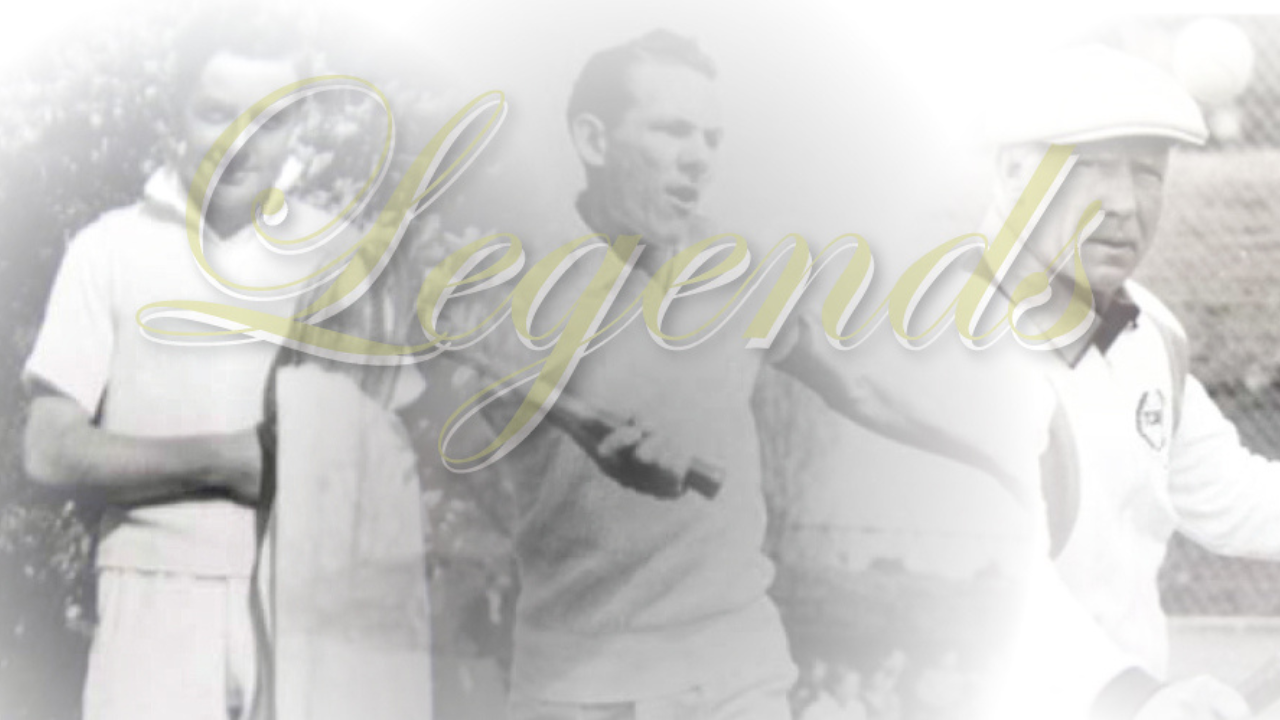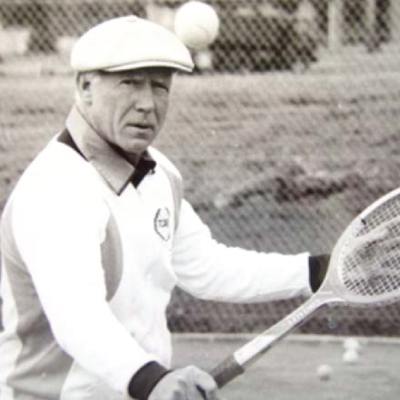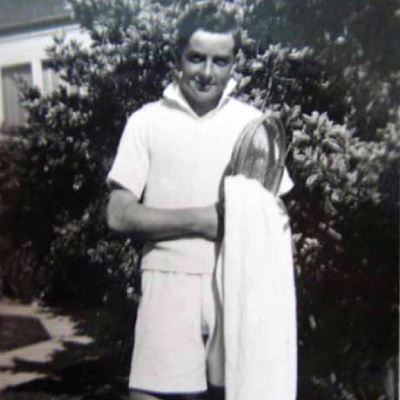TCAV Legends | Honouring Iconic Coaches in Australian Tennis

Becoming a TCAV Legend is the ultimate honour for coaches who have dedicated over 40 years to the sport. Legends are recognised for their significant contributions to tennis coaching and the TCAV, having held qualifications such as a PTAV/TCAV Advanced or equivalent (Diploma of Tennis Coaching, Certificate of Qualification, Club Professional). These coaches have made an impact in areas such as coaching, business, education, and volunteer work, leaving a lasting legacy with their students, peers, and the wider tennis community.
Achieving TCAV Legends Status
TCAV Legend status, alongside Life Membership, represents the highest recognition for a lifetime of service to both tennis coaching and the administration of our Association. This prestigious honour is not just a reflection of a coach's technical expertise, but their commitment to nurturing the next generation, fostering community, and driving positive change in the sport.
Introducing Our TCAV Legends
We are proud to celebrate five distinguished coaches who have earned TCAV Legend status. These individuals have helped shape tennis coaching in Australia through their remarkable achievements and dedication to the sport.
Our most recent inductees are Ian Barclay (2016) and Will Coghlan (2019), with their bios being updated currently.

Norm F Cahill: A TCAV Legend’s Legacy
Norman F. Cahill’s contribution to tennis coaching in Australia is nothing short of remarkable. Inducted as a TCAV Legend in 2011, Norman has left an indelible mark on the sport and its community. His journey began in the early days of tennis coaching, where he played an instrumental role in shaping key institutions and events that continue to impact tennis in Australia today.
A Visionary Leader in Tennis Community Development
Norman was pivotal in the formation of several important tennis clubs and facilities, including the inaugural meetings and steering committees of Legend Park Tennis Club, Glenvale Tennis Club, and Knox Indoor Tennis Centre. His vision for growing the sport and creating accessible spaces for coaching and competition led to the foundation of these vital tennis hubs.
He also played a key role in the establishment of the Waverley & District Tennis Tournament, an event that has become a staple in the tennis calendar and continues to bring together players from across the region.
A Lifelong Commitment to Coaching
Norman’s impact as a coach is vast, having worked with more than 20 tennis clubs across metropolitan Melbourne and many schools. His dedication to nurturing young talent is evident in his 33-year coaching tenure at Wesley College and his long-term role at Xavier College. His legacy of coaching excellence extends beyond the city, as he continues to work with country clubs and schools, including Heathcote, Murchison, Nagambie, Tumut, and the Puckapunyal Army Base.
Norman’s commitment to developing juniors also led him to conduct numerous tennis tours overseas, taking young players to New Zealand and the USA for their first international trips. His trips to Lord Howe Island, where he ran tennis clinics, were also notable milestones in his coaching career.
A Champion for the Tennis Community
Norman’s involvement with the tennis community has been extensive. He worked alongside Denis Lemke to conduct tennis clinics in Mildura, Echuca, Wodonga, and Albury, further cementing his role as a leader in tennis coaching across the country.
He joined the TCAQ (Tennis Coaches Association Queensland) in 1962, and after returning to Melbourne in 1964, he was admitted to the PTAV (Professional Tennis Association Victoria) through an Interstate Reciprocal Transfer. Norman’s dedication extended to supporting the next generation of coaches, as he facilitated exams for applicants on his courts in Glen Waverley for many years.
Leadership Roles and Lasting Impact
Norman’s leadership within the tennis community was further demonstrated through his role as Treasurer of the LTPAA (Lawn Tennis Professional Association Australia) for nearly 10 years, as well as his service as their Queensland delegate. His involvement in the PTAV committee as Publicity Officer in the early 70s also saw him organise a tennis float for the iconic Moomba Parade, showcasing the vibrant tennis community to the broader public.
A Legend in Every Sense
Norman F. Cahill’s contributions to tennis coaching and the tennis community are unparalleled. His dedication to the sport, both on and off the court, has made him a true TCAV Legend and a respected figure in Australian tennis history. His legacy lives on through the countless players and coaches who have benefited from his wisdom, mentorship, and passion for the game.
With Denis Lemke conducted numerous tennis clinics at Mildura, Echuca, Wodonga and Albury.
Joined the TCAQ in 1962 and upon return to Melbourne in 1964 was admitted to the PTAV on an Interstate Reciprocal Transfer.
For many years the PTAV/TCAV conducted the examination of applicants on his courts in Glen Waverley.
Was treasurer of the LTPAA for nearly 10 years, and also their Queensland delegate.
Appointed on the PTAV committee as Publicity officer and in the early 70’s organised a tennis float in the Moomba parade.

Don Tregonning: A TCAV Legend’s Journey
Don Tregonning’s career is a testament to the power of dedication, expertise, and passion for tennis. Inducted as a TCAV Legend, Don has made significant contributions to the sport as both a player and a coach. His exceptional career spanned continents and generations, leaving a lasting legacy on tennis in Australia and beyond.
A Career in Competitive Tennis
Don's tennis journey began at the highest levels of competition. He played at Wimbledon in 1951 and 1952 with direct entry and competed in the Australian Championships and various State titles. He also participated in the World Professional Championships in 1953, earning recognition as one of Australia’s top players of his era.
A Lifelong Commitment to Coaching
In 1953, Don transitioned to coaching in England, where his impact on the sport began to take shape. In 1955, he was appointed as Denmark’s National Coach, and he coached the Danish Davis Cup team during the same year, marking the start of an influential coaching career. He also coached Kurt Nielsen, who reached the Wimbledon final in 1955, further cementing Don’s reputation as a coach of international calibre.
Don returned to Australia in 1956 and began coaching at Fawkner Park, where he continued to develop his coaching career. In the same year, Don attended the initial meetings to form the Tennis Coaches Association, playing a pivotal role in the creation of the organisation that would support coaches for years to come.
Coaching Future Champions
Don’s coaching legacy includes working with Australian Junior Champions such as Cliff Letcher and Greg Whitecross, as well as Australian Junior Finalists including Bill Durham, Trevor Little, Elizabeth Little, and Sally Irvine. His coaching at Kooyong in partnership with Ian Occleshaw was also instrumental in the development of several players who went on to make their mark in Australian tennis.
Throughout his career, Don coached various Linton Cup and Shell Squad country squads, as well as Australian Junior Squads, providing guidance and expertise to young talents across the country. His commitment to coaching was not confined to Australia; he also worked with international squads from the Philippines, China, and Japan, further expanding his global influence.
A Global Coach and His Impact
One of Don’s most notable coaching achievements was his involvement in American tennis camps alongside Ian Occleshaw and Harry Hopman, helping develop tennis in the United States. His work in Japan was especially significant, where he coached leading juniors for over 30 years. In 1971, Don played a crucial role in helping Japan achieve a historic 3-2 victory over Australia in the Davis Cup, marking a key moment in tennis history.
A Legend with a Lasting Legacy
Don Tregonning’s contributions to tennis are immeasurable. His coaching expertise, dedication, and leadership have shaped the careers of countless players and coaches worldwide. His legacy, both as a player and a coach, has left a lasting impact on the sport of tennis in Australia and across the globe.
Don’s message for the future? He wishes the association the best for the next 50 years, continuing the legacy of excellence he helped build. Don Tregonning is, and will always be, a true TCAV Legend.

Ian Occleshaw: Celebrating a TCAV Legend’s Impact
Ian Occleshaw’s name is synonymous with excellence in tennis coaching, both in Australia and internationally. Inducted as the first-ever TCAV Legend in 2008, Ian’s remarkable contributions to tennis have spanned decades, shaping the careers of countless players and coaches. His dedication to the sport, his pioneering coaching career, and his leadership within the Tennis Coaches Association have cemented his place as one of the sport’s most respected figures.
A Career Built on Dedication and Achievement
Ian’s tennis journey began with a strong competitive background. He played pennant for Lauriston and Glen Iris Tennis Clubs and was a proud member of the Linton Cup team in 1947, representing his commitment to the sport at the highest level. However, it was his coaching career that truly defined his legacy.
In 1951, Ian began coaching, and by 1956, he had established a coaching base at West Coburg, where he owned four courts. He spent 30 years as the coach at Glen Iris, where his expertise shaped the careers of many aspiring players. Ian’s impact didn’t stop there—he became the resident pro at Kooyong, partnering with Don Tregonning for over 20 years, a collaboration that would go on to influence the next generation of coaches and players.
Coaching Champions and Developing Future Talent
Ian’s coaching career extended far beyond club courts. He was the school coach at Corowa for 35 years and at St Catherine’s for 30 years, mentoring young players and fostering their love for the game. He also managed several Wilson and Linton Cup teams, contributing significantly to junior tennis development in Victoria.
Ian was also instrumental in running the Glen Iris Junior Tournament for 30 years, helping to create a platform for young players to showcase their skills. Additionally, he managed the Victorian schoolboys/schoolgirls tournaments for 8 years and the TCAV juniors for 7 years, further cementing his influence in the development of junior tennis in Australia.
International Influence and Leadership
Beyond Australia, Ian’s coaching extended internationally. He conducted solidarity clinics in Brunei and Fiji, and his coaching career also took him to the USA, where he further honed his expertise. Ian’s coaching legacy includes his work with elite players such as Peter McNamara, who achieved a world ranking of 7, and Alan Stone, both of whom benefitted from Ian’s guidance and mentorship.
Ian’s commitment to the sport also saw him serve on the Tennis Australia Development Board for 8 years and as a VTA State Selector for an impressive 20 years, influencing the direction of tennis at both the state and national levels.
A Leader Within TCAV
Ian’s influence within TCAV cannot be overstated. He served as the first TCAV Secretary in 1956, playing a pivotal role in the founding of the Association. Ian later had two stints as TCAV President, and he remained a board member for over 50 years, shaping the development and success of the organisation.
In 2008, Ian’s exceptional contributions were recognised when he became the first-ever TCAV Legend, an honour that reflects his dedication to tennis and his unparalleled service to the coaching community.
A Lasting Legacy
Ian Occleshaw’s legacy is one of unwavering dedication to the sport of tennis. His contributions as a coach, mentor, leader, and pioneer continue to shape the tennis community in Australia. From his early days as a player to his decades of coaching, Ian’s impact on the sport is profound, and his role as a TCAV Legend serves as a fitting tribute to his lifetime of service to tennis coaching.
Ian’s commitment to the sport, his students, and the broader tennis community has left an indelible mark. His legacy will continue to inspire generations of coaches, players, and tennis enthusiasts for many years to come.


